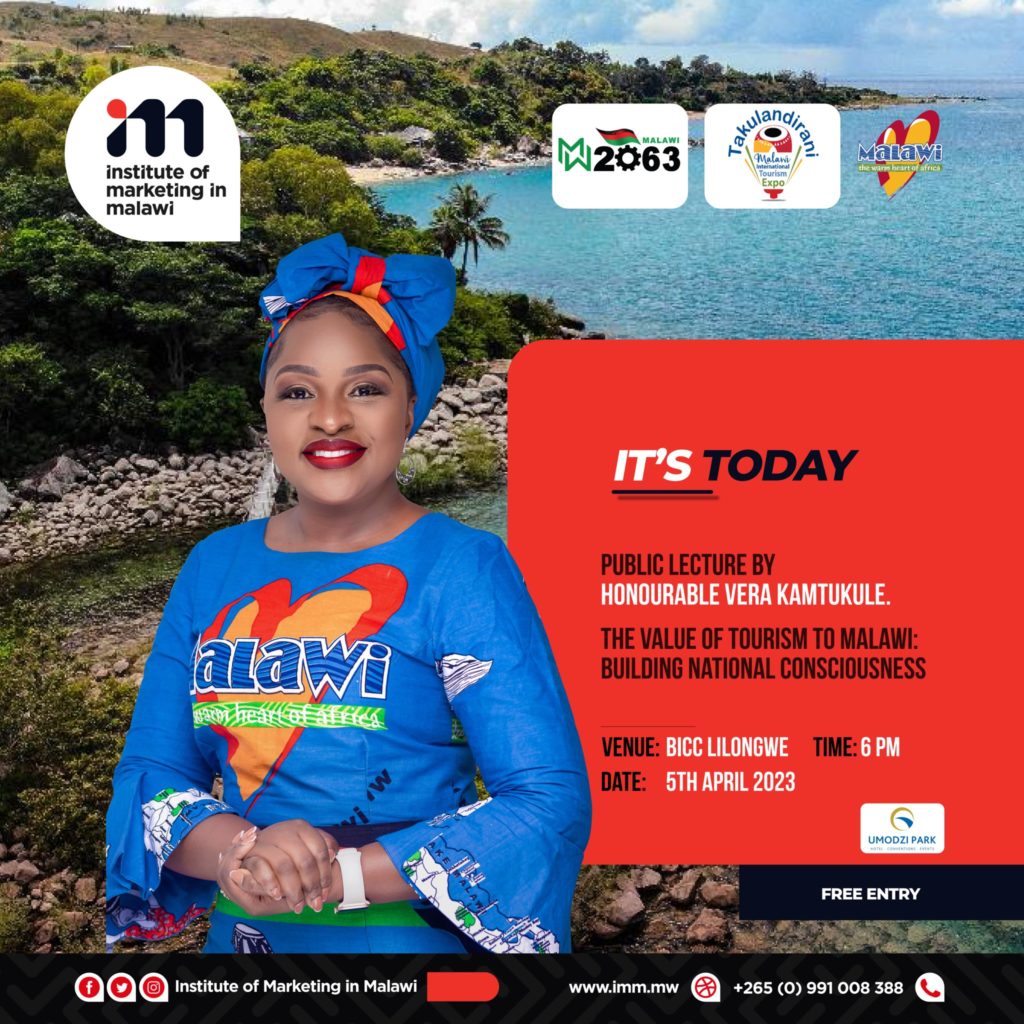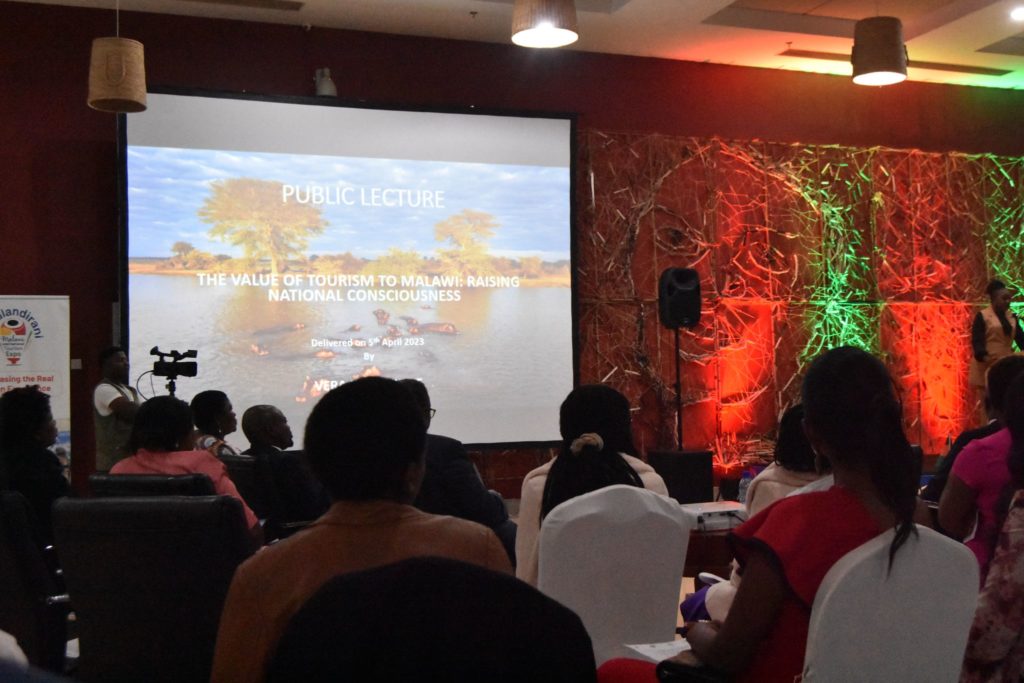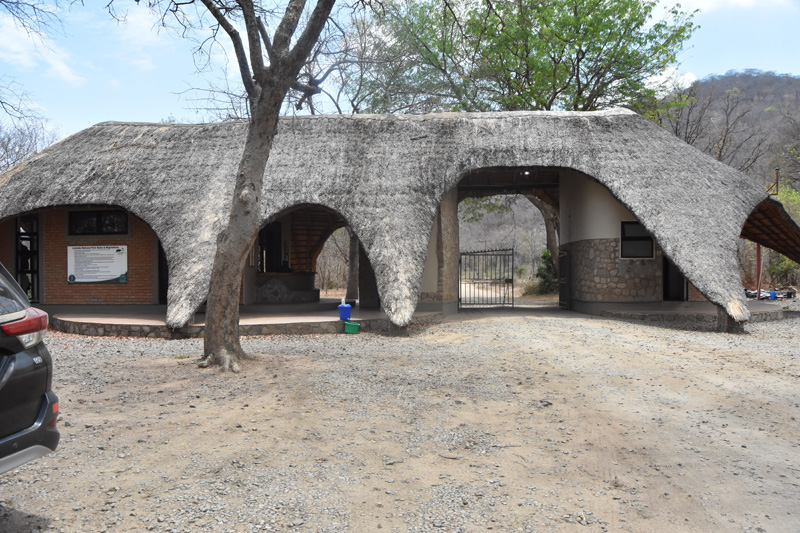The value of tourism to Malawi
Published · Updated
A lecture on raising national consciousness
Recently the Malawi Minister of Tourism Vera Kamtukule held a public lecture on The Value of Tourism to Malawi: Raising national consciousness. It was an insightful presentation about the history of Malawi tourism, where we are now and where we should aspire to be.
Her presentation touched on a number of issues concerning the tourism industry. The absence of direct flights from key source markets to the affordability of facilities for locals. How we market our country as well as the policies that have been put in place to develop the sector. Many of these issues are well-known and passionately debated on social media.

The lecture was organised by the Institute of Marketing in Malawi, the National Planning Commission and the Department of Tourism.
Affordability of tourism facilities
The issue that perhaps gets the most attention is affordability. Many tourist facilities are expensive and out of the reach of most Malawians. An example is car entrance fees to national parks which are pegged in US dollars. Rates for both accommodation and food in most hotels are also costly. This effectively limits the average Malawian from experiencing their own country. Many people have the ‘workshop culture’ to thank for being able to travel around the country and sleep in upmarket hotels.
There were a number of comments and questions from the lecture attendees. A key concern raised was that some international tourists pay for their visit to Malawi in the US or Europe and that those monies never make it into the country. The practice not only denies the country the much-needed foreign exchange it requires, but it is also an illegal business practice.

Part of the audience at the public lecture
Cost of being graded as a tourism property
Another comment was on the cost of being graded as a tourism property. In order for the Department of Tourism to grade a property, there are certain standards that have to be met. These include the quality of furniture, the linen as well as the type of toilet tissues used. Most, if not all, of these items, have to be imported. It is common knowledge that importing anything into Malawi is expensive. This is where the pricing problems start. No one is going to spend an arm and a leg getting a 3 or 4-star rating and then charge rates that are low and don’t make financial sense!
But do we really need to import most of the things we import?
We have the capacity to produce quality foods that we mostly find supermarkets importing. We have the skills to manufacture uniquely beautiful furniture for our top hotels and lodges. And as the minister said, we grow our own cotton and therefore can produce top-quality linen if we wanted to.
We can significantly limit our imports if the agricultural and manufacturing sectors took up the challenge to produce export-quality goods. Of course, this requires the government to create a conducive environment to make this happen. Other industries can’t sit back and think that the tourism or tech sectors are the only hope of pulling the country out of the stagnation we are in. Every industry has a unique and important role to play.
Local creativity

The traditionally inspired design of Liwonde National Park entrance gate.
There is a trend developing across lodges and hotels in Africa. Locally inspired architecture and interior design are taking hold. Creators are designing and creating uniquely African furniture and accessories. Architects are being challenged to design traditional yet modern facilities.
I have not seen much enthusiasm among our tourism property developers to catch onto that trend. Perhaps tourism entrepreneurs can’t really visualise properties like that. Or perhaps we as a country can’t really identify with or agree on what makes a design local and or Malawian.
Bisate Lodge in Rwanda
One thing is for sure. We have many local artisans endowed with great creativity. This is possibly the time for their creativity to shine through our hotels, bars and other tourism facilities. The opportunity is there for the projects in the Malawi Tourism Master Plan.
Why would one travel half the way around the world to sleep and dine in lodging that looks everything like the hotels they left back home?
Download the presentation here.
Cover image adapted from Institute of Marketing Malawi advert
To receive an occasional email of stories from the #LifeUnbound blog and other gems, subscribe below.





